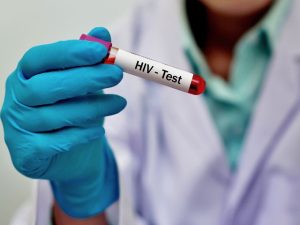What Are the Signs and Symptoms of HIV?
When people contract HIV, signs and symptoms are often seen in three stages.
Stage 1
Stage 1, also known as the acute HIV infection stage, is when someone has a high HIV viral load in their blood. People in Stage 1 often have several flu-like symptoms, such as fever, night sweats, and rash. Stage 1 HIV can often have similar clinical presentations to other infections, which can make early detection and diagnosis overlooked sometimes.
Stage 2
Stage 2, also known as the chronic HIV infections stage, is when someone still has an active HIV viral load and may or may not have any symptoms. If people receive treatment in this stage, they will most likely not progress to Stage 3, also known as acquired immunodeficiency syndrome (AIDS).
Stage 3
Stage 3 was much more common years ago than now. Increased HIV testing sites, education efforts about condom and single needle use, and HIV research have significantly reduced the rates of AIDS.
However, AIDS is still a reality for many people who contract HIV, especially those who do not receive regular HIV medication, HIV testing, or other health services.









